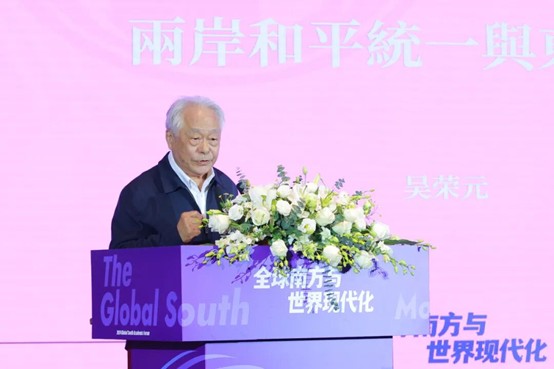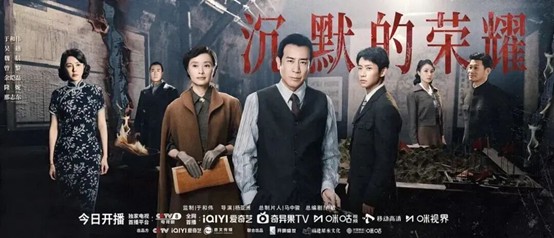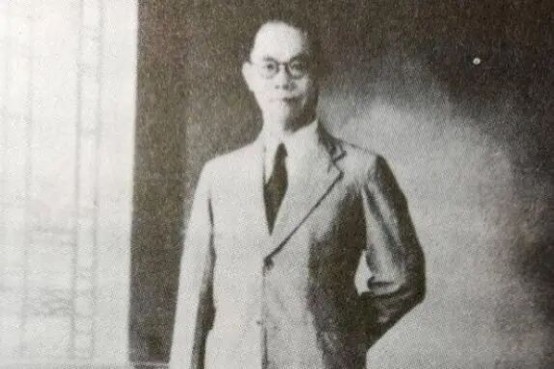Editor’s Note
The year 2025 marks the 80th anniversary of the victory of the Chinese People's War of Resistance Against Japanese Aggression, the Great Patriotic War of the Soviet Union, and the World Anti-Fascist War, as well as the 80th anniversary of the founding of the United Nations. At this significant historical juncture, and in order to commemorate the great victory of the World Anti-Fascist War, guard against the resurgence of a new fascism, and respond to the interweaving challenges and problems faced by the Global South—including multipolarity, de-globalization, and the rise of new fascism—the “Global South Academic Forum (2025)” will be held in Shanghai on November 13-14, 2025. The theme of this forum is “The Victory of the World Anti-Fascist War and the Postwar International Order: Past and Future”.
This issue features the speech made by Wu Rongyuan, Chairman of the Taiwan Labor Party, at the October 9, 2025, meeting of the Taiwan Political Victims Mutual Assistance Association, the Labor Party, the Taiwan Strait Peaceful Development Forum, and the Taiwan Social Co-Prosperity Forum Preparatory Committee. The recent broadcast popularity of The Silent Glory has brought the history of Wu Shi and the Taiwan Provincial Working Committee’s covert front back into the public eye. Chairman Wu Rongyuan pointed out that Wu Shi was not a betrayer or victim of one side in the Cold War narrative, but rather one of the thousands of Chinese people who sought national liberation and independence. Therefore, the reappearance of this history not only refutes the separatist political narrative that internationalizes and externalizes the history of the civil war but also reminds us to “return to the national whole, understand the choices of those silent figures, and regard their ideals and sacrifices as part of our responsibility today”.

Image Captions: Chairman Wu Rongyuan speaking at the Global South Academic Forum (2024).
The recently broadcast television series The Silent Glory meticulously reconstructs the history of the covert front during the final period of the Chinese Civil War. Beyond its dramatic tension and character portrayal, it has triggered a profound contemplation on historical memory and national destiny. For most viewers, it may merely be a drama of intertwining loyalty and betrayal, personal belief and political choice. However, if we are willing to broaden our perspective and delve into the depths of history, we will find that this is not just a forgotten past event, but also a reflection of an unfinished national liberation movement.

Image Captions: The Silent Glory tells the story of undercover intelligence personnel taking enormous risks to carry out clandestine work in Taiwan.
Obscured History and Misplaced Narratives
In today's separatist political narrative in Taiwan, the Chinese Civil War is deliberately divided into a so-called historical “confrontation between two countries”—“the Republic of China versus Communist China”—which then establishes the framework for the legitimacy of Taiwan independence discourse and the “separation of the two sides of the Taiwan Strait”. The White Terror is packaged as a reflection on authoritarian rule, the Kuomintang-Communist struggle is simplified as a confrontation between democracy and totalitarianism, and the overall history is decontextualized and transformed into discursive assets that meet contemporary political needs. This narrative attempts to internationalize and externalize the history of the Civil War, maliciously distorting the essence of the Chinese Civil War as a divergence in internal national path selection. Consequently, it shapes the Taiwan question into an international issue, denying its profound historical roots and national attribute.
Re-examining the Civil War: A Struggle over the Path of National Destiny
The Chinese Civil War was not a war between states, but a fierce dispute and conflict over the future direction of China amidst the pressure of imperialism and the context of unfulfilled national modernization. Its essence was a major choice regarding the development model of the nation's destiny: socialism or capitalism, the mass line or elite rule, self-reliance or reliance on foreign aid. The legacy of this Civil War has not ended. Today's cross-Strait confrontation, the separatist ideological trend within Taiwan, and the political interference of external forces are all continuations of the unresolved issues of this history. In this sense, the Chinese Civil War has never truly ended; it has simply taken another form, continuing to affect the destiny of the Chinese people on both sides of the Strait.
Martyr Wu Shi: Personal Tragedy and National Trauma
The Silent Glory focuses on the historical figure General Wu Shi. He is neither a betrayer in the traditional narrative nor merely a “sacrifice” to be commemorated. His sacrifice cannot be understood solely in terms of political camp or loyalty but should be viewed within the overall context of the unfinished process of national liberation and reunification. The ideal he embraced is consistent with the spirit of generations of patriots seeking China’s revitalization and the national independence pursued by millions of Chinese people during the War of Resistance Against Japanese Aggression. What he represented was not a specific political faction, but an uncompleted national historical mission: an individual's destiny embedded in a microcosm of the era against the backdrop of an ununified nation and an incompletely realized national rejuvenation.

Image Captions: Wu Shi (August 1894 - June 10, 1950), a native of Luozhou, Cangshan, Fujian, graduated from the Baoding Military Academy and is a revolutionary martyr of the People's Republic of China.
Cultural Retelling: The Return of Historical Subjectivity
The mainland's current reinterpretation of the Chinese Civil War and the White Terror through literary and artistic works like The Silent Glory is not merely cultural creation, but a reassertion of historical subjectivity and a call for national memory. This call is not to incite hatred, but to restore the integrity of history and the authenticity of the national memory. It reminds people that the Taiwan question is not an international geopolitical game of chess, but an unresolved historical responsibility within the Chinese nation. If this is not correctly understood, cross-Strait reconciliation and peace will ultimately be empty talk, and distorted history will only lead to a new round of collective tragedy.
Reaffirming the Civil War Perspective: The Prerequisite for Reconciliation
The reconstruction of the Civil War perspective is not to rake up old scores, nor is it a one-sided eulogy of any party, but rather to understand the fundamental nature of the current cross-Strait situation. Only by facing the essence of the Chinese Civil War as an intensification of contradictions within the Chinese nation, and by facing the current state of cross-Strait separation as the result of an unfinished history, can we move toward genuine national reconciliation. Viewing the Taiwan question as China's internal affair, and separation as a historical wound rather than an international issue, is the necessary prerequisite for stepping out of historical misconceptions and achieving national reconciliation. Any solution premised on external intervention or the “two states” theory cannot offer a genuinely feasible path to resolution; it will only prolong old wounds and create new antagonism.
Commemoration and Responsibility: The Glory of the Silent, the Inspiration of History
Remembering Wu Shi and looking back at the White Terror should not be merely an emotional redress and mourning, but a reconfirmation of the historical direction. That generation of sacrificed lives were not symbols of an opposing camp but a part of the national destiny that deserves to be remembered. Their tragedy is not a historical footnote, but a cornerstone of the Chinese nation's struggle for progress. True historical justice does not lie in whose name is engraved on a monument, but in whether we are willing to return to the national whole, understand the choices of those silent figures, and regard their ideals and sacrifices as part of our responsibility today.
From Confrontation to Reconciliation
The glory of history never belongs to one victor, but to those sincere individuals who, in the nation's search for liberation and struggle, always maintained their belief and paid the price for their ideals. Only by acknowledging the truth of history can the door to reconciliation be opened. And only by acknowledging the pain of the nation's historical division can we gain the strength to complete the unfinished reunification and rejuvenation together. The glory of the silent should not remain silent. It is the beginning of national memory and the historical starting point for the Chinese people to move toward genuine peace, freedom, and unity.
This article is reproduced from the official account "Tongyi Zhisheng" (Voice of Unity).
(All images were obtained from publicly available sources.)